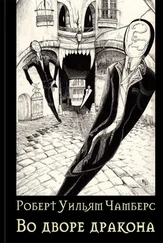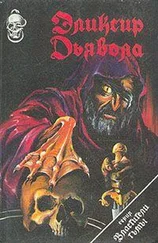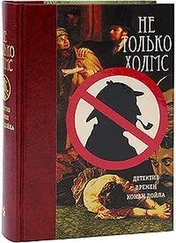Роберт Чамберс - Who Goes There!
Здесь есть возможность читать онлайн «Роберт Чамберс - Who Goes There!» весь текст электронной книги совершенно бесплатно (целиком полную версию без сокращений). В некоторых случаях можно слушать аудио, скачать через торрент в формате fb2 и присутствует краткое содержание. Год выпуска: 2014, Издательство: epubBooks Classics, Жанр: Историческая проза, на английском языке. Описание произведения, (предисловие) а так же отзывы посетителей доступны на портале библиотеки ЛибКат.
- Название:Who Goes There!
- Автор:
- Издательство:epubBooks Classics
- Жанр:
- Год:2014
- ISBN:нет данных
- Рейтинг книги:4 / 5. Голосов: 1
-
Избранное:Добавить в избранное
- Отзывы:
-
Ваша оценка:
- 80
- 1
- 2
- 3
- 4
- 5
Who Goes There!: краткое содержание, описание и аннотация
Предлагаем к чтению аннотацию, описание, краткое содержание или предисловие (зависит от того, что написал сам автор книги «Who Goes There!»). Если вы не нашли необходимую информацию о книге — напишите в комментариях, мы постараемся отыскать её.
Who Goes There! — читать онлайн бесплатно полную книгу (весь текст) целиком
Ниже представлен текст книги, разбитый по страницам. Система сохранения места последней прочитанной страницы, позволяет с удобством читать онлайн бесплатно книгу «Who Goes There!», без необходимости каждый раз заново искать на чём Вы остановились. Поставьте закладку, и сможете в любой момент перейти на страницу, на которой закончили чтение.
Интервал:
Закладка:
Who Goes There!
Robert W. Chambers
Dedication
To
J. Hamblen Sears
Joseph! I've known you now for many years;
You are the Hero of this pretty story;
In him your every virtue reappears
Lighting his way along the road to glory.
All you possess adorns this Hero gay,
Your fatal beauty, curly hair, and so forth;
Like you he's always ready, night or day,
To pack his doggy clothes and ties and go forth.
No winsome maid beneath a summer sky,
Innured to prudence, modesty, and duty
Would dare demur or hesitate to fly
With such a manly specimen of beauty.
Accept, my friend, this tribute to your worth
As publisher, explorer, lover, fighter,
For men like you were destined from their birth
To make a millionaire of any writer.
R. W. C.
Who Goes There!
Not with indifferent or with flippant hand
Draw the curtain's corner to disclose
A rose, a leaf, a path through this sad land
Untrampled yet by foes.
Out of the Past—the Heart's last Hermitage—
A wistful Phantom glides to me again
Here where I pace that solitary cage
They call, The World of Men.
In vain she mirrors me the Golden Age;
Vain is her Voice of Spring in wood and glen;
The winter sunlight falls across my page
Gilding a broken pen.
Withered the magic gardens which were mine;
Eden, in embers, blackens in the sun;
Rooting amid crushed roses the Wild Swine
Still root, and spare not one.
Village and spire and scented forest path,
Pastures and brooks, meadows and hills and fens
Heard not the secret whispering in Gath
There where the Gray Boar dens,
Till burst his dreadful clamour on the Rhine
And all the World shrank deafened by the roar
Aghast before the out–rush of Wild Swine
Led by the great Gray Boar.
Fallen the cloud–capped castles which were mine;
Cities in ashes whiten in the sun;
Rending the ruined shrines, the Rhenish Swine
Still rend, and spare not one.
"Who goes there!"
Preface
The Crown Prince is partly right; the majority in the world is against him and what he stands for; but not against Germany and the Germans.
He professes surprise at the attitude of the United States. That attitude is the natural result of various causes among which are the following:
Distrust of any aggressor by a nation inclined toward peace.
Disgust at the "scrap of paper" episode.
Resentment at the invasion of Belgium.
Contempt for the Imperial Government which is industriously screwing the last penny of "indemnity" out of a ruined nation, which the people of the United States are taxing their private means to keep from starvation.
Further back there are other reasons.
For thirty years the press of Germany has seldom missed an opportunity to express its contempt for Americans. Any American who has ever lived in Germany or who has read German newspapers during the last thirty years is aware of the tone of the German press concerning America and Americans. No innuendoes have been too vulgar, no sneers too brutal for the editors of these papers, and, presumably for the readers.
Also Americans do not forget the attitude of the Imperial Government during the Spanish war. The bad manners of a German Admiral are bearing fruit.
Imperialism we Americans do not understand, but it need not make us unfriendly to empires.
But we do understand when manners are bad, or when a military caste, which maintains its traditions of personal honour by violence, becomes arrogant to the point of brutality.
A false notion of personal honour is alone enough to prevent a sympathetic understanding between two peoples.
America is not an enemy to Germany, only is it inexorably opposed to any Government which breaks faith; and which enthrones above all other gods the god of violence.
For the German soldiers who are dying in this Hohenzollern–Hapsburg war we have only sympathy and pity. We know they are as brave as any soldiers; that cruelty in the German Army is in no greater proportion than it is in any army.
But also we know that the cause of Imperial Germany is wrong; her civilization is founded on propositions impossible for any American to accept; her aims, ambitions, and ideals antagonistic to the progress to communal and individual liberty as we understand the terms. And that settles the matter for us.
Chapter I
In the Mist
They had selected for their business the outer face of an old garden wall. There were red tiles on the coping; dusty roadside vines half covered the base. Where plaster had peeled off a few weather–beaten bricks showed. Bees hummed in the trampled herbage.
Against this wall they backed the first six men. One, a mere boy, was crying, wiping his frightened eyes on his shirt–sleeve.
The dry crash of the volley ended the matter; all the men against the wall collapsed. Presently one of them, the boy who had been crying, moved his arm in the grass. A rifle spoke instantly, and he moved no more.
There came a low–spoken word of command, the firing squad shouldered rifles, wheeled, and moved off; and out of the sea–grey masses of infantry another squad of execution came marching up, smartly.
A dozen men, some in sabots, trousers, and dirty collarless shirts, some in well–cut business suits and straw hats, and all with their wrists tied behind them, stood silently awaiting their turns. One among them, a young man wearing a golf–cap, knickerbockers, heather–spats, and an absolutely colourless face, stood staring at the tumbled heaps of clothing along the foot of the wall as though stupified.
Six peasants went first; the men more smartly attired were to wait a little longer it appeared.
The emotionless and methodical preparations, the brisk precision of the operation, the cheerful celerity of the firing squad made it the more terrifying, stunning the victims to immobility.
The young man in the golf–cap and knickerbockers clenched his tied hands. Not an atom of colour remained in cheeks or lips, and he stood with face averted while the squad of execution was busy with its business.
There seemed to be some slight disorder along the wall—a defiant voice was raised hoarsely cursing all Germans; another, thin and hysterical, cheered for Belgium and the young King. Also this firing squad must have aimed badly, for bayonet and rifle–butt were used afterward and some delay occurred; and an officer, revolver swinging, prowled along the foot of the wall, kicking inquiringly at the dead heaps of heavy flesh that had collapsed there.
Houses lining the single village street began to leak smoke; smoke writhed and curled behind closed window–panes. Here and there a mounted Uhlan forced his big horse up on the sidewalk and drove his lance butt through the window glass.
Already the street was swimming in thin strata of smoke; the sea–grey uniforms of the German infantry seemed part of the haze; only the faces of the soldiery were visible—faces without bodies, thousands of flat, detached faces, thousands of little pig eyes set in a blank and foggy void. And over everything in the close, heavy air brooded the sour stench of a sweat–soaked, unwashed army.
A third squad of execution came swinging up, apparently out of nowhere, their heavy half–boots clumping in unison on the stony street.
Читать дальшеИнтервал:
Закладка:
Похожие книги на «Who Goes There!»
Представляем Вашему вниманию похожие книги на «Who Goes There!» списком для выбора. Мы отобрали схожую по названию и смыслу литературу в надежде предоставить читателям больше вариантов отыскать новые, интересные, ещё непрочитанные произведения.
Обсуждение, отзывы о книге «Who Goes There!» и просто собственные мнения читателей. Оставьте ваши комментарии, напишите, что Вы думаете о произведении, его смысле или главных героях. Укажите что конкретно понравилось, а что нет, и почему Вы так считаете.












